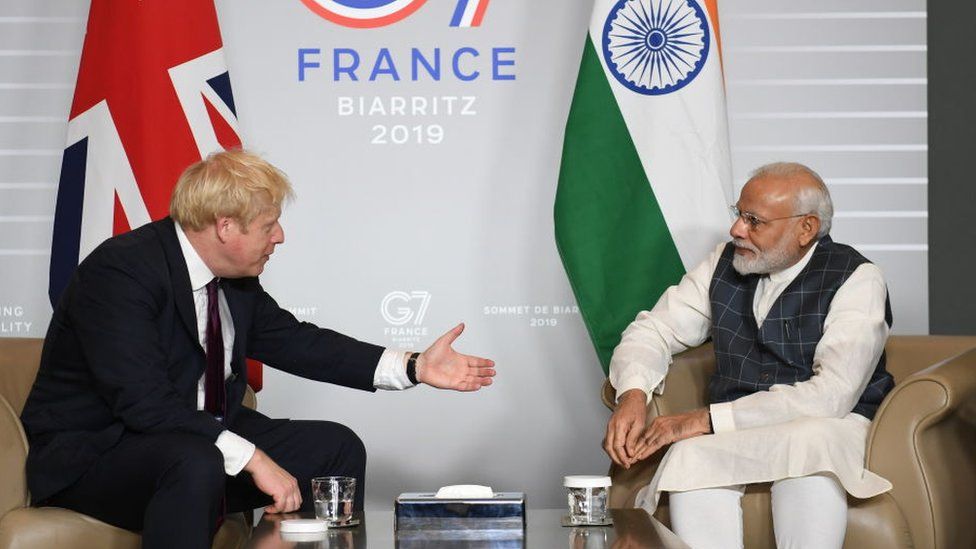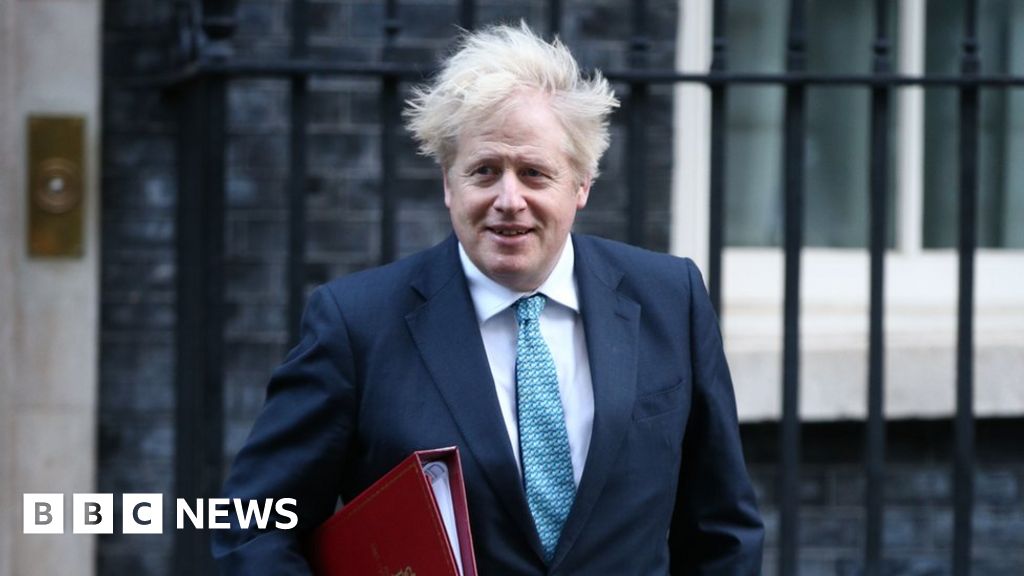
image copyrightGetty Images
The prime minister has announced new trade and investment deals with India worth £1bn.
It includes more than £533m of new investment from India into the UK, which is expected to create about 6,000 jobs.
Downing Street said the new partnership will “pave the way” for a future UK-India Free Trade Agreement.
“The economic links between our countries make our people stronger and safer,” said Mr Johnson.
The deal, announced ahead of a virtual meeting with India’s Prime Minister Narendra Modi, includes a £240m investment by the Serum Institute of India, which will support clinical trials, research and possibly the manufacturing of vaccines.
Serum has already started phase one trials in the UK of a one-dose nasal vaccine for coronavirus, in partnership with Codagenix.
Indian investment deals will create 1,000 new UK jobs each at health and tech firms Infosys, HCL Technologies and Mphasis.
Some 667 UK jobs will be created at Q-Rich Creations, 500 jobs at Wipro and 465 at 12 Agro.
“Each and every one of the more than 6,500 jobs we have announced today will help families and communities build back from coronavirus and boost the British and Indian economies,” said Mr Johnson.


In recent years, the UK has sold more to Belgium or Sweden than India. But the government hopes that closer ties with one of the most populous and fastest-growing major economies could have huge long-term potential – especially as tensions with China mount.
It believes that this announcement, which boosts access to India for producers of British fruit and medical devices – and means investment in the UK from India’s vaccine producers – is just a taste of what could be achieved.
But economists warn that getting a full deal with Delhi that lowers tariff and non-tariff barriers won’t be easy. India is likely, for example, to want UK entry visa requirements for its workers and students to be eased.
Attempts by the European Union, Australia and New Zealand to strike free trade deals with India have all stalled.
But as that nation grapples with the economic damage caused by the pandemic and the rising threat from China, it may now take a more pragmatic approach to brokering an agreement.

Meanwhile, British businesses have secured export deals with India worth more than £446m, which are expected to create more than 400 British jobs.
They include a £200m deal involving CMR Surgical, which will create 100 new UK jobs.
The company’s next-generation ‘Versius’ surgical robotic system – which helps surgeons perform minimal access surgery – will be rolled out to hospitals in India.
Trade between the UK and India is already worth around £23bn a year, supporting more than half a million jobs, according to the government.
Mr Johnson said: “In the decade ahead, with the help of new partnership signed today and a comprehensive free trade agreement, we will double the value of our trading partnership with India and take the relationship between our two countries to new highs.”
Mr Johnson had been forced to cancel a planned visit to Delhi as it battles with a brutal second wave of coronavirus cases.
The visit was designed to foster closer ties between the two countries and had first been scheduled for January.
It was delayed after the UK’s higher wave of Covid infections over winter.
A four-day trip was scheduled for April before being cut back to just one day in Delhi, before being postponed indefinitely last month, with India subsequently added to the UK’s travel “red list”.
On Monday, authorities in Delhi called for help from the army. The government wants it to run Covid care facilities and intensive care units.
Across India, case numbers since the start of the outbreak are closing in on 20 million.
In response to India’s coronavirus surge, the British Asian Trust has raised more than £1.6m in the last week through its emergency appeal.


